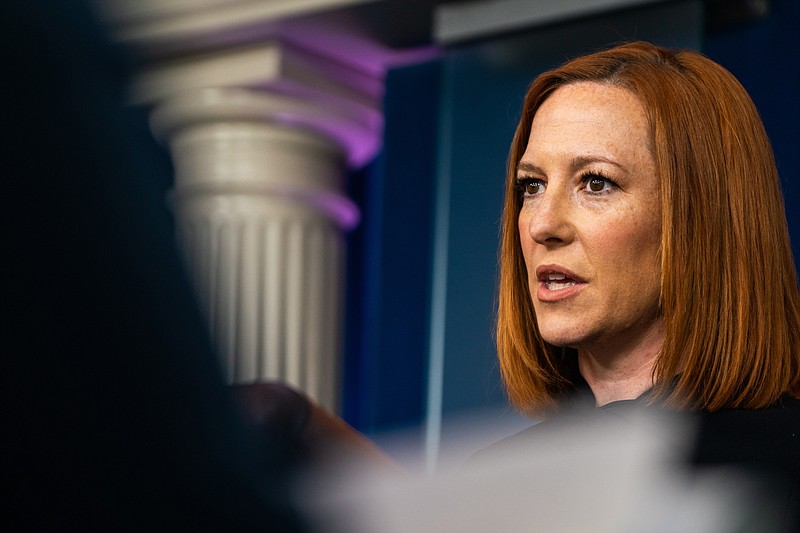WASHINGTON -- The White House is preparing to unveil a roughly $1.8 trillion spending and tax plan this week that includes many of President Joe Biden's campaign promises but also reflects the challenges facing the administration as it tries to transform the U.S. economy.
The "American Families Plan," set to be released ahead of the president's joint address Wednesday to Congress, would be at least partially funded by about a half-dozen tax increases on high-income Americans and investors, proposed changes that are already provoking fierce opposition in Congress and on Wall Street.
The key components of the plan are:
• Roughly $300 billion in education funding, the biggest pot of which includes funding to make two-year community colleges tuition-free.
• $225 billion in child care funding.
• $225 billion for paid family and medical leave.
• $200 billion for prekindergarten instruction.
• $200 billion to extend more enhanced Affordable Care Act subsidies, according to three people briefed on the plan who spoke on condition of anonymity.
The plan also would extend a more robust child-tax credit until 2025, the people said, a measure that could cost as much as $400 billion, as well as extending a more robust tax credit for workers.
White House officials spent much of last week making a series of refinements to the plan, showing the enormous pressure they are under to include or discard key items as they attempt to satisfy a range of competing voices.
For example, the increase in health insurance subsidies is a change that White House officials were working on as late as Friday.
And despite pressure from Democratic leadership, White House officials are prepared to table a measure they had included in earlier drafts aimed at reducing consumer and government spending on prescription drugs, a measure fiercely opposed by the pharmaceutical industry, the people said.
Aides stressed that discussions were preliminary and subject to change. The overall price tag of the measure also could wind up being lower.
The proposal will represent the second part of Biden's "Build Back Better" agenda, after the $2.3 trillion jobs and manufacturing proposal the White House released several weeks ago. Combined, the approximately $4 trillion in new spending would amount to among the most ambitious government overhauls of the economy in decades.
But the administration's coming proposal also shows the limits constraining Biden's ambitions, with the White House set to jettison campaign pledges and demands from key allies in the face of countervailing political pressures.
"It is an important moment; it is an opportunity to lay out his agenda. But it will not represent the totality of every proposal he wants to achieve during the course of his presidency," White House press secretary Jen Psaki said Thursday when asked whether the prescription drug change had fallen out of the measure.
The legislative challenges in passing the bill also could be among the most difficult the White House has so far faced. Many congressional Republicans have said they will be fiercely opposed to new spending measures -- and tax increases -- as Biden tries to navigate his proposals through Congress.
Biden's first major effort -- the $1.9 trillion stimulus package -- was accelerated by pandemic crisis and widespread calls for additional federal funds to fight it. The infrastructure plan is just beginning to work its way through Congress, but Republicans and corporate America have long acknowledged the need to make large investment to rebuild the nation's roads, bridges and other infrastructure. Some Republicans have indicated they favor a scaled-back infrastructure plan.
The package to be unveiled this week, by contrast, moves the administration onto potentially more fraught legislative terrain -- attempting to approve largely Democratic priorities with the narrowest of margins in the House and Senate. It is unclear whether the White House will seek to pass the jobs plan first or attempt to package the efforts.
Even if they try to pass the measures through the Senate by a simple majority vote -- something at least one Democrat has raised concerns about -- they would have to keep virtually all members of their party satisfied with the legislation.
"I'm not sure anyone knows how this is going to play out," said Jim Manley, who served as an aide to former Senate Majority Leader Harry Reid, D-Nev.

